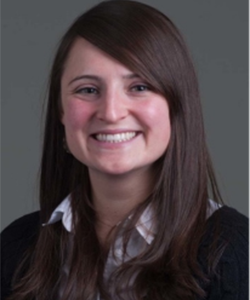The Center for Water Policy at the UWM School for Freshwater Sciences has named Laura M. Suppes as the 2022-23 Water Policy Scholar. Suppes is an associate professor in public health and environmental studies at UW-Eau Claire.
As a Water Policy Scholar, Suppes will develop a model to assess human illness risk from ingesting per- and polyfluoroalkyl substances (PFAS), which are persistent, harmful contaminants present in Wisconsin groundwater, a source of drinking water. Her work will focus on Eau Claire residents.

Suppes’ yearlong project can help inform public health policymaking around this emerging contaminant. Water quality safety and emerging contaminants is one of the Freshwater Collaborative of Wisconsin’s 10 grand challenges.
The Environmental Protection Agency has advised that at least two of the four synthetic pollutants known as “forever chemicals” can affect health even at levels close to zero.
Eau Claire has more than 68,000 residents who rely on groundwater as the source of municipal drinking water. PFAS were discovered in four of Eau Claire’s 16 municipal water wells during summer of 2021. Although Eau Claire’s water utility has stopped using the contaminated wells, residents consuming municipal drinking water prior to 2021 were exposed to PFAS.
Exposure data unique to the Eau Claire community – such as the average amount of water people ingested – will be collected and analyzed. Results will be shared with the Eau Claire City-County Health Department for use in public health messaging about PFAS exposure and illness risk.
The developed risk assessment model will be accessible to the UW Water Policy Network for use and dissemination. In the model, exposure inputs can be customized to assess illness probabilities in other areas of Wisconsin where PFAS have been found.
The Water Policy Scholars program brings policy researchers across the UW System together with freshwater scientists to frame policy questions and adapt tools to address water resource issues. The program is intended to increase the Center for Water Policy’s capacity to develop sustainable solutions to freshwater problems.
Suppes received her master’s degree in public health administration and policy from the University of Minnesota and her PhD in environmental health sciences from the University of Arizona. Her research interests are chemical and biological hazard identification and remediation in water, exposure assessment and quantitative microbiological risk assessment.





